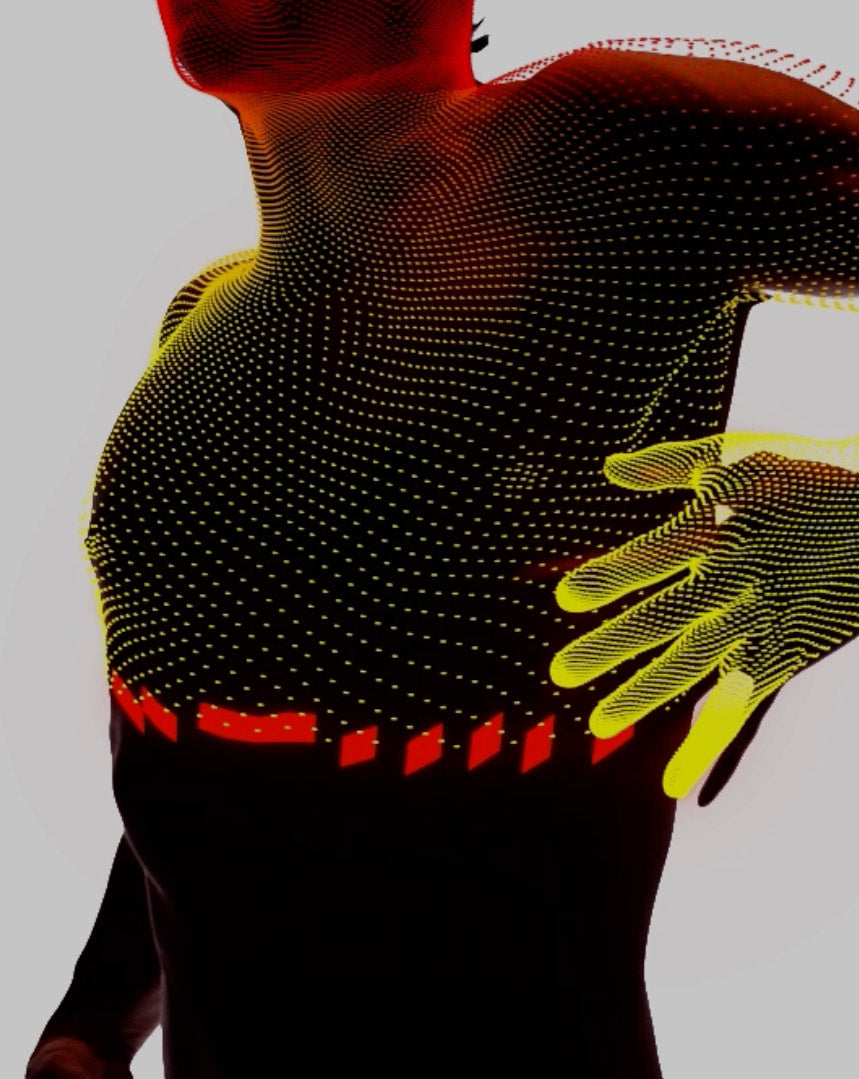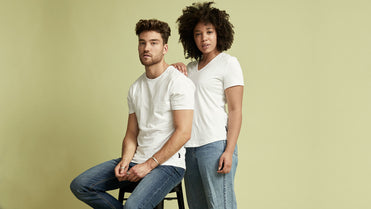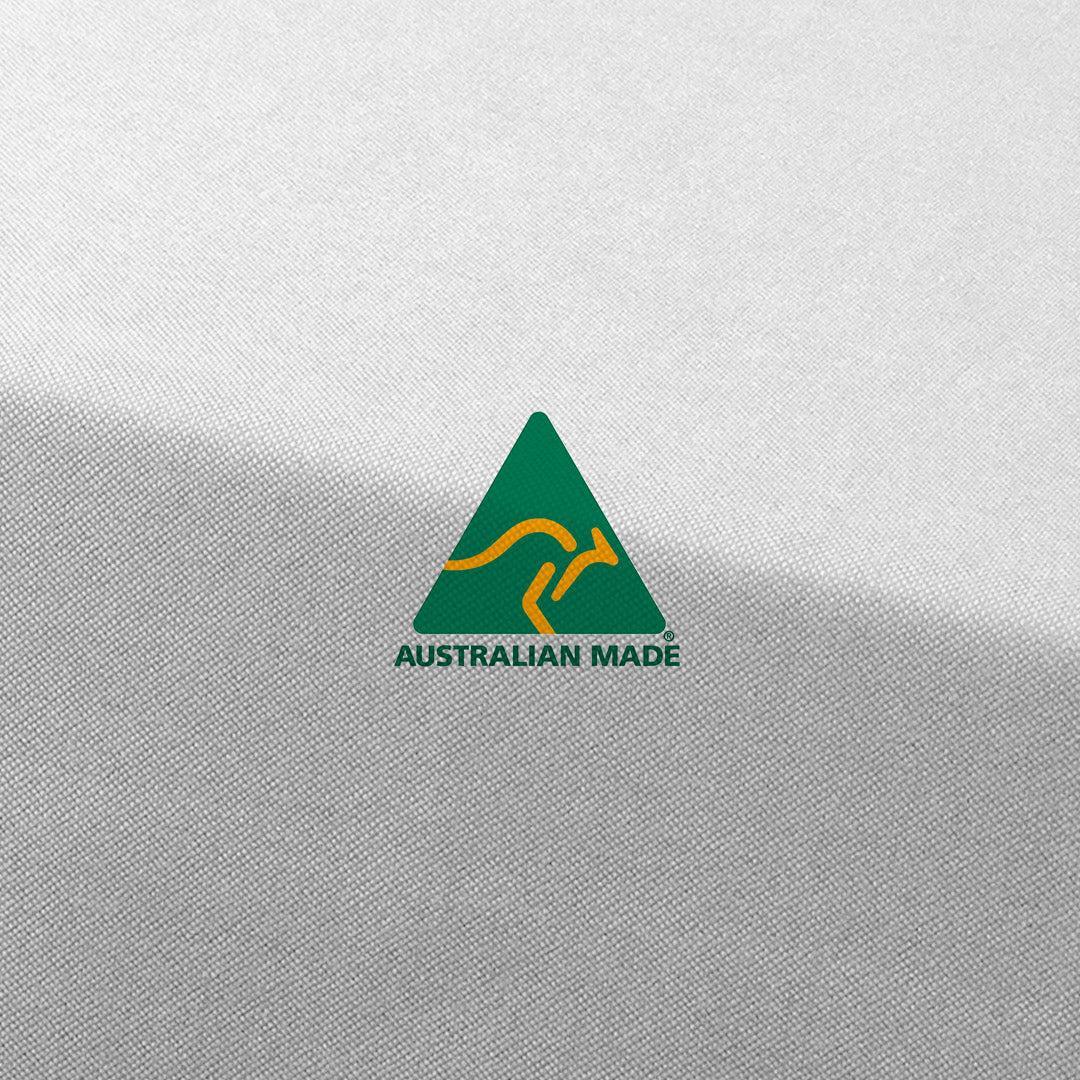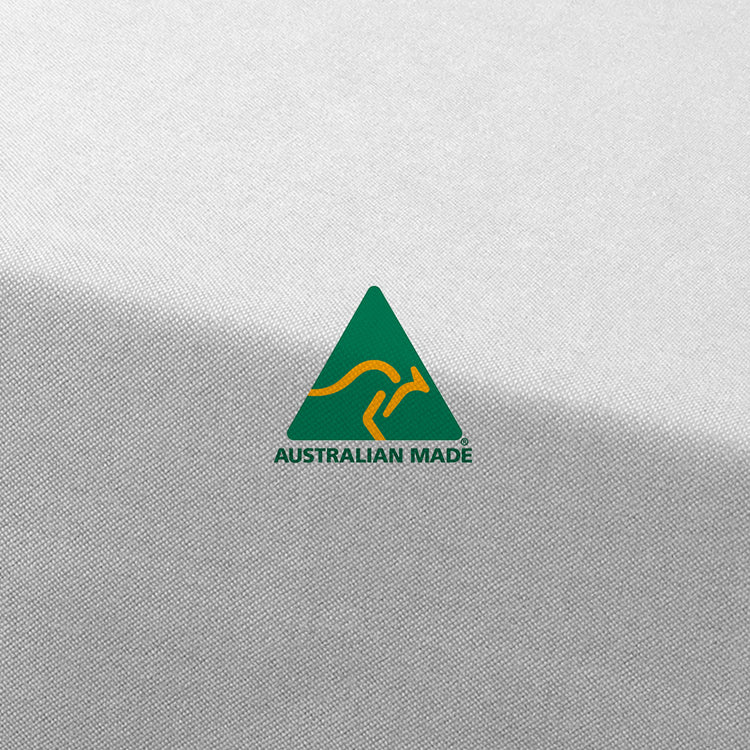As we approach the January long weekend, it’s worth noting that our population has just hit an all-time high of 27 million people. Many people will see this as a net-net good thing, but some won’t. Much like debating the appropriateness of 26th of January as a day of celebration (hint: it’s not), or, whether supermarkets should sell patriotic trinkets regardless of demand (hint: they shouldn’t).
What is not controversial is that supporting Australian-made businesses ultimately benefits all 27 million people living Down Under. And far beyond this weekend, buying Made in Australia is a good idea all year round for a few different reasons.
The Economics of Aussie Fashion

Less than 3% of clothing bought in Australia is made locally. While the allure of cheap overseas options is understandable, we all end up paying the true cost — economically, socially, and ethically.
You might be surprised to know that the Aussie fashion industry contributes over $27 billion to our economy annually, or about 1.5% of GDP. That's larger than the entire wine industry, plus fashion contributes double the export revenue of wine and beer combined, at $7.2 billion annually.
Australian fashion also keeps over 489,000 employed, more than the entire mining industry. Crucially, Aussie fashion employs double the average percentage of women (77%) compared to other industries, offering economic security across a broad range of skills from machinists to CEOs.
When you buy Aussie-made, you’re not just supporting local businesses and workers. It also means more tax revenue generated that flows directly back into your community, higher economic growth which raises everyone’s living standards, and a more resilient economy that can better withstand the next black swan event.
Social Costs of Globalised Fashion

Fast Fashion, much like fast food, offers the illusion of abundance at cheap prices, but the reality is also a lot less appetizing. The heavily globalised business model relies on the exploitation of workers and abusing weak legal systems to maximise profits while minimising responsibility.
The lack of transparency in the fashion industry results in garment workers being among the lowest paid globally, working in shockingly unsafe conditions. In particular, the 2013 Rana Plaza disaster in Bangladesh serves as a stark example of playing fast and loose with workers' rights and safety. 1129 garment workers lost their lives when their factory building collapsed around them, despite numerous warnings about unsafe conditions. While it may feel great to score a cheap outfit, no fashion is worth the price in human lives.
In Australia, we're fortunate to have strong legal protections for workers' rights and environmental standards, greatly reducing the risk of exploitation. However, that doesn’t mean it’s non-existent and that’s why you should also look for local fashion brands like Citizen Wolf that are Ethical Clothing Australia accredited, which is regarded as one of the most stringent compliance standards in the world for fashion. We’ve been proudly ECA certified for over 6 years, undergoing regular independent audits conducted by union representatives.
Environmental Costs of Fast Fashion

Historically, clothing was designed to be used for a long time. However, the rise of fast fashion has changed our relationship with clothing for the worse. Fashion is now disposable, with 52 seasons a year encouraging more production and consumption.
The result? The fashion industry is responsible for 10% of global carbon emissions, and is on track to surge another 50% by 2030.
Why? Because we buy 60% more clothes and discard them after half as many wears compared to just 15 years ago, contributing to a staggering 100 million tonnes of landfill each year globally.
In Australia alone, 1.4 billion pieces of clothing are imported each year compared to 38 million made locally. This translates to 56 new items of clothing and 23kg of clothing going to landfill per person, every year.
While many responsible Australians believe that donating clothes to charities is the right thing to do, the reality is that 90% of garments donated are not saleable due to poor quality. In fact, charities end up paying $13 million a year to send 60,000 tonnes of this donated clothing to landfill - money which could be much better used to serve their communities.
This is an enormous and unsustainable level of waste, especially when it’s made under terrible working conditions for clothes with increasingly less use, or not needed to be made at all.
Buying locally-made clothing costs more upfront, but the quality is better and you can be sure your Aussie-made clothes will last a lot longer. You’re much better off getting quality clothes you love, custom-made to fit your body thanks to Magic Fit®, that last and that can be freely repaired. The result is a win for you, your wallet and the planet.
So when you next make choices for your wardrobe, consider the impact beyond the initial price tag. Supporting Aussie businesses means contributing to a stronger economy, creating livelihoods for skilled workers, and an environment that the next 27 million Australians can still enjoy and prosper within.
A note about choice
We don't celebrate Australia Day as a brand here at Citizen Wolf, and we are vocal advocates for changing the date. We also give our staff the choice as to whether or not they work Jan 26. Some do, and end up taking a day in lieu later in the year. Others take the day off due to family commitments with schools and daycares being closed. Either way, if you’d like to shop in-store this Friday, then our Marrickville factory will be open from 10 - 4 pm, January 26, 2024.







